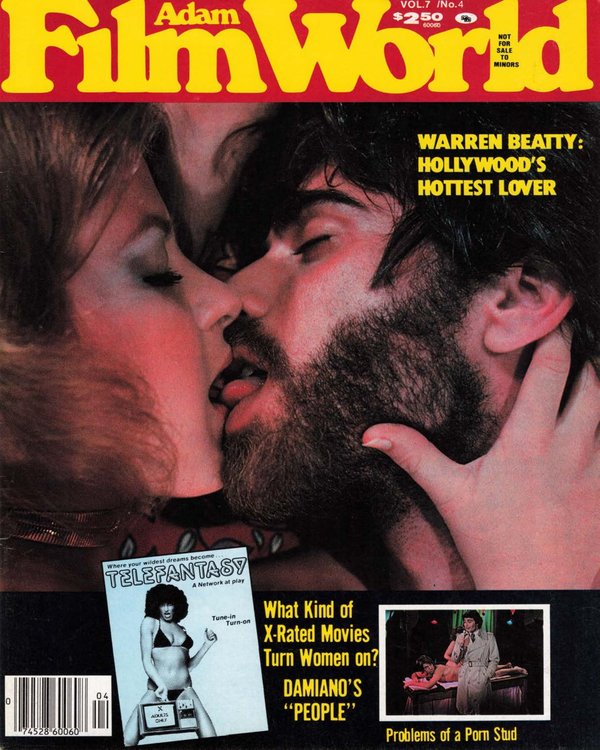Part 1/2
After careful tests, Chaim, a professor of physics at the Hebrew University in Jerusalem, is now satisfied that his time machine is reliable enough for human use.
He's pretty content with his life -- he has just made the most important discovery in history -- but he has a small regret: although he still loves his wife Bruriah as much as he did the day he married her, age has made her less attractive - there is some cellulite on her buttocks, her breasts are now sagging, and there are a few wrinkles too many on her face.
He's never thought of divorcing her -- and he concedes that aging has made Bruriah all the wiser -- but sex with her has become difficult, and he thinks that the best solution to this quandary is to use the time machine to meet his wife in the past, as a young woman, and to make love with her.
To prevent meeting his former self, not just his wife, he programs the time machine in order to remove his past self into an alternate reality before bringing himself to the past -- once he's back to his own time, the past self will also be brought back to its own.
Chaim and Bruriah got married in 1980, and he goes back to that time, about a week after marriage. When he comes home, Buriah doesn't recognize him and asks, "Who are you?"
"I'm Chaim, your husband, and I can prove it."
"How? He's much younger and leaner than you!"
"Compare my fingerprints with the ones I sealed our engagement agreement with -- because fingerprints can't be disowned, especially since I had them taken in 1976 when joining the military."
Bruriah does that, and concedes that Chaim is her husband. He in turn tells her about the time machine he has eventually built, thus reassuring her that all the sacrifices she's going to make and the hardships she's going through will eventually be worth the while.
They speak a lot, eat supper and eventually go to bed; since Chaim has taken a Cialis pill before time travelling, his sexual performance is outstanding - but Bruriah is exceedingly pleased that her husband, even though he can meet scores of young female students from all over the world at university, still prefers her to them.
Next morning, when he wakes up, he notices that Bruriah's home is somewhat dirty and cheaply furnished -- and he remembers that in 1980 they couldn't even afford a vacuum cleaner and a dishwasher.
So he thinks that he should financially help his wife; and he also thinks that if her hardships will be relieved, she will be probably prettier in her old age -- so helping her becomes of paramount importance.
He shares the project with her, and tells her, "I can't give you money, because Israeli coins and notes in 2011 will be different -- but I can bring you food, books, and so on, so you may save the money for other expenses"
"Chaim, I badly need a vacuum cleaner; can't you bring me one?"
"Power plugs will be different too, sorry."
So Chaim begins to time commute in order to supply Bruriah with food, detergents, and even books -- because she loves to read, and because some of the books the young Chaim needs for his studies aren't available at the University Library, and he can't afford to buy them.
So the living standards of Bruriah's family improve, and Chaim's academic performance too.
In 1985 Israel changes currency; 1985 notes are no more in use, but some coins still are, and Chaim goes back to September 1985 with a suitcase filled with 10,000 1 Sheqel coins.
"Sorry, they're the biggest denomination that could be brought back from 2011 to 1985. I hope that you'll spend them well."
"Yes. Tomorrow I'll pay off the auto loan -- you've got an internship at the Ben Gurion University at Beersheva, and you can't go there by train."
"I remember. The car will be all the more useful, as you'll find a job there, so we'll be able to travel together."
"Will we always show up in time at work?"
"No, darling. We will often stop under a tree and ... you know what will happen."
"Will we have children? Even though I make love every day, with either you or my current husband, I never conceive."
"We'll discover that I'm sterile due to something that happened to me while in the military -- sorry, it is still classified, I can't tell you more."
Bruriah weeps over that disclosure and asks, "Is there a remedy?"
"I should come back to before joining the IDF, and make love with you. But we hadn't met yet, and I could only succeed by raping you."
"Don't even think about it!"
"Don't worry, I've already ruled out that."
The next day Bruriah goes to the bank and hands the suitcase to the cashier. He opens it, pours the coins into the coin counter, and then hands the 10,000 Sheqel receipt to Bruriah.
She then goes to the director's office and hands him the receipt to pay off the debt. While she's signing the papers, the cashier calls the director and tells him, "Sir, there is something strange. She's deposited apparently regular coins, but with future dates stretching to 5771-2011! What shall we do?"
"Forward these coins to the Bank of Israel!"
The Bank of Israel labs confirm what the cashier has said: they're regular Bank of Israel coins, but with future dates; the labs director asks her researchers to sort them by date, and to check with a magnifying glass whether the earlier the dates on the coins, the more worn out they are -- he's right: the ones that bear the earliest dates are the most tarnished and worn out.
These coins are a serious issue for the Governor of the Bank of Israel, especially because he remembers that Hitler tried to undermine the British and American economies during World War II by forging millions of enemy banknotes, and he fears that Israel's enemies are copycatting the Fuehrer, so he alerts the Mossad.
The Mossad chief plays down this hypothesis: forging 1 Sheqel coins actually costs more than 1 Sheqel per coin -- so nobody's interested in that. And even if somebody were, why should he forge coins with future dates, thus exposing them as forgeries? There must be another explanation.
The Governor replies that a forger may have released these coins to prove his worth and blackmail the Israeli government -- and this blatant forgery of coins may be followed by the issuing of flawlessly counterfeit coins, or even notes, if the Government doesn't stop him.
The Mossad chief rejoins that flooding Israel with counterfeit coins wouldn't harm it that much, and the forger would soon stop because he would only lose money; moerover, since minting coins and printing notes use very different technologies, being able to forge a coin doesn't prove one's ability to forge notes. If a forger wanted to showcase his prowess, he wouldn't have behaved as such.
The Governor is unconvinced, and brings the issue to the Prime Minister's office. Although the Prime Minister doubts the Governor's hypothesis, he concedes that a forger counterfeiting Israeli coins poses an existential threat to the country, and must be stopped at all costs.
Since the only parties interested in threatening Israel's existence are the Arab League and the PLO, the Prime Minister orders the IDF to raze the PLO headquarters in Tunis as soon as possible -- even though the Mossad chief remarks that these headquarters (as per Mossad's agents' surveys) don't consume enough electricity to operate a mint, so the PLO mustn't be the guilty party.















